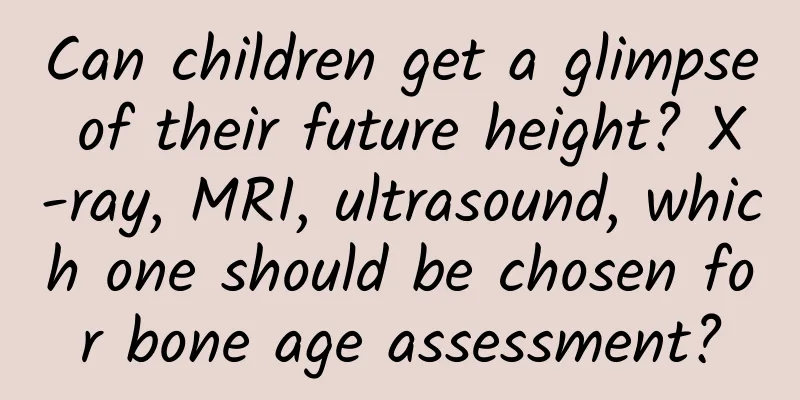Digital "immortality" is all the rage in Silicon Valley! Are digital people who can inherit family businesses a new IQ tax?

|
The environment we live in now is an era full of digital data. From the moment you are born, various numbers are printed on your birth certificate, accompanying you throughout your life. Even on your smartphone, every operation is fully recorded and various indexes are obtained. Numbers have become an indispensable part of modern human civilization. People's technology is becoming more and more dependent on data, and some people may even be replaced by numbers. Digital immortality: Will humans never die? According to the Wall Street Journal, some Silicon Valley companies are exploring the possibility of AI achieving human "digital immortality". The so-called digital immortality is to transfer all things at the level of consciousness, such as human memories and thoughts, to computers or virtual reality to create an immortal digital person. Digital humans originated from HereAfter, whose founder is James Vlahos. James developed an AI conversation robot called Dadbot because he missed his deceased father. After uploading the chat records and recordings with his father to Dadbot, he can chat with his deceased father again through text or voice through Dadbot. The successful application of Dadbot has extended the true meaning of digital humans. Unlike James' Dadbot, 78-year-old American writer Andrew created a digital person, AndyBot, before his death. A large amount of data makes AndyBot no different from Andrew himself when talking. His family can interact with him through Amazon's Alexa after his death, and Andrew will live forever in the HereAfter server. Currently, a large number of users communicate with their deceased relatives through HereAfter. This experience eliminates most of the anxiety of "parents are gone and there is only a journey left in life", and gives those who are still alive spiritual sustenance. This year, the famous Microsoft company also applied for a patent on digital humans, which will create chatbots based on historical figures or real people. The pursuit of life by the rich: IQ tax? With the continuous development of AI technology, such digital people are becoming more and more real, especially for this generation living in the "digital age". A large number of numbers will make the similarity of digital people infinitely close, and they will even continue to learn and grow after the real person passes away, and continue to live in the virtual world. Some executives of technology companies or wealthy people also hope to hand over their companies to their digital people to manage and inherit their family business after their death. This idea has not yet been supported by the corresponding laws, and it is difficult for people to judge whether digital people can obtain sufficient identities and rights. At present, the concept of "digital immortality" has not been established. Even if digital people are becoming more and more realistic, they are only limited to "likeness". Only a few people are interested in the illusory digital people. What really attracts the collective attention of the rich is the biological industry. Take Sequoia China as an example. It currently has more than 180 investment projects in the medical and health field. The wealthy all agree that instead of pinning their hopes on the unattainable "immortality of consciousness", it is better to choose aging interventions that are within reach. In September this year, the famous Amazon founder Bezos once again made a move in this field. Silicon Valley biotech company Altos Labs announced that it had received a total investment of US$270 million from Bezos and other wealthy people. According to incomplete statistics, from the time Bezos took charge of Amazon to his retirement, Bezos has led at least US$3 billion in investment in biotech companies. The game between digital immortality and aging intervention As early as 2013-2015, the cell field welcomed a landmark product, the cell aging inhibitor. Professor Sinclair of Harvard Medical School demonstrated the feasible mechanism of cell reversal in animal experiments. The amazing inhibitory effect can extend the survival of elderly mice by as much as 30%. Bezos has seen the popularity of the biological field, so it is normal for him to make similar investment moves. The explosion of interventional technology has led global investors to continue to increase their investment in this field. Giants such as Roche and Novartis have stepped into the market. There are more than 3,000 related companies in Silicon Valley alone, and the scale of investment has exceeded US$100 billion. Another group of people are more passionate about digital immortality, such as the alternative genius and technology fanatic Musk, as well as Google and Russian tycoon Dmitry Itskov. They are particularly interested in consciousness uploading and human-computer interface, which are the foundation of future digital humans. There are two levels of human immortality: physical immortality and conscious immortality. However, the consequence of physical immortality is that the population will increase, eventually causing society to collapse beyond its limit. Digital immortality, in theory, only preserves a person's memory and thinking, which can be called up at any time through human-machine integration, taking up very few resources. Musk believes that AI simulation alone is not enough to achieve the so-called immortality of thinking, and the way out for digital humans lies in brain-computer interfaces. In recent years, some scientific research institutions have continuously launched projects to extend life from the DNA molecule level, but Musk established the Neuralink brain-computer interface company in 2016. "Brain-computer interaction can extract all the memories and consciousness of the human brain into a chip. The chip can be placed on a robot or uploaded to the virtual world, achieving the state of 'human-machine integration'." If the magical brain-computer interface can be realized to such an extent, Musk will have an extra key to open the treasure chest of wealth. However, some other investors are not optimistic. For example, after Shanda founder Chen Tianqiao invested heavily in the establishment of a brain science research center, he was told by some of the world's top academic institutions that the next technological breakthrough of brain-computer interface is estimated to be 20 or 30 years later. What is the final solution? In the fierce competition, will the traditional extension of physical life be more widely accepted, or will brain-computer interface and other methods to create digital people of the future become the trend? It is still difficult to see which side will win in the end. But I think both methods are necessary. Extending physical life is a topic that humans urgently need to break through, and the final direction of mankind will be the era of digital people. Because only by upgrading the human survival form and living in an invisible digital way, free from the constraints of the flesh, can we ultimately solve all problems, such as complex resource requirements, the volume occupied by deep space voyages, survival time, etc. Only by solving these problems can humans go further in the vast universe and avoid more disasters and survive. Humans are born afraid of death. Whether it is aging intervention technology or becoming a virtual digital person, it is a great temptation for many humans. As for whether these are IQ taxes played by capital, it remains to be tested by time. The copyright of Space-Time Communication is original. Infringement and plagiarism are unethical behavior. Please understand and cooperate. |
<<: Dry and cold in the north VS wet and cold in the south, which one is colder?
>>: Visit the critically endangered species - black bush-tailed monkeys and cotton-top tamarin cubs
Recommend
Will not brushing teeth for a long time cause pneumonia? Periodontitis is related to so many systemic diseases...
Periodontitis is the most common oral disease, so...
Electric Technology Car News: Great Wall's new model WEY is exposed, positioned as a luxury rival to Guandao
The news about Great Wall's luxury brand WEY ...
General Administration of Customs: China's automobile exports will reach 5.221 million units in 2023, ranking first in the world
The data just released by the General Administrat...
A review of the 2015 BAT campus recruitments: some increases and some decreases
It is the beginning of another school year, and i...
Community Operation Growth Flywheel
We can start from the five major links of the com...
5 health care misunderstandings that deceived parents, you will regret it now
Our parents gave us life and everything good. Whe...
Zhongshentong - How to get an account with over 10,000 followers in 15 days, 31 practical courses on how to create a hit account
Zhongshentong - How to get more than 10,000 follo...
Apple releases iOS 15.5 official version: smoother, supports third-party payment for some apps
In the early morning of May 17th, Beijing time, A...
Electric Technology Car News: WEY VV7c is known as China's Porsche moving towards high-end. Has Great Wall thought about Zotye's feelings?
Since Great Wall Motors announced the launch of i...
Baidu Brand Activity Strategy
Autumn is the season of harvest. There is only on...
Ye Maozhong's "Ye Maozhong's Speech and Interview Collection"
Ye Maozhong's "Ye Maozhong's Speech ...
The first cold wave of 2024 is coming to the south! How to prevent safety when traveling and driving?
As the proverb goes, "walk on ice during the...
How to correctly intercept competitors’ high-quality traffic? Avoid blindly placing competitor keywords
In the marketing process, there is a type of keyw...
Powder snow is easy to slide on and doesn’t hurt, but is it more dangerous?
Snow is a fascinating natural phenomenon. Whether...
Humans celebrate the Spring Festival, but these behaviors will make kittens upset? Three tips to reduce the harm
Review expert: Wang Lei, National Park and Nature...









